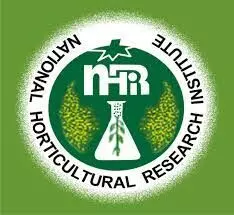- Home
- /
- More
- /
- Agriculture
- /
- NIHORT ‘ll work to...
NIHORT ‘ll work to meet domestic, export needs of horticultural crops – Executive Director

Executive Director of National Horticultural Research Institute (NIHORT), Dr Mohammad Attanda, says the institute will work assiduously to meet domestic and export demands for horticultural crops.
Attanda stated this during the 2023 annual In-House Research Review and Planning meeting of the institute on Wednesday in Ibadan.
Supreme News reports that the theme of the programme was: “Bio-economy: Imperative for Sustainable Horticultural Crops Valued Chain Development.”
The executive director said that lots of responsibilities fell on NIHORT to develop technologies on horticultural produce and products for local and export markets, human health, industrial raw materials and employment generation.
He said that the expectation of the Federal Government was high on NIHORT to support its drive toward achieving food security, employment generation and economic diversification.
“The institute shall work to meet the demands for domestic needs of horticultural crops like tomato, citrus and value-added products.
“In addition, exports of some horticultural crops like pineapple, mango, plantain, banana and avocado pear in international markets shall be promoted.
“Improved horticultural seeds and seedlings shall be made available to farmers,” he said.
Attanda said that about 150,000 new varieties of pineapple suckers would be given to pineapple farmers in 2024 to plant to enhance exportation of the commodity.
He said that the current pineapple varieties in Nigeria were not good for export, hence the research and development of the new pineapple varieties.
“By 2024, the variety which is through biotechnology means and rapid multiplication technology will be given to pineapple farmers.
“If we are able to export it, it will diversify our economy, increase our foreign reserves and foreign currency earning and stem the importation of pineapple concept which they use in making pineapple juice,” he said.
While declaring the review open, the Executive Secretary, Agricultural Research Council of Nigeria (ARCN), Prof. Gabriel Sharubutu, said bio-economy was fast gaining grounds in the world and that Nigeria must not be left behind.
Sharubutu, represented by Dr Oluwafemi Salako, said that the key ingredient in bio-economy value chain was biomass, adding that the horticultural sector generated a large amount of residual biomass that was currently undervalued.
“Bio-economy strategy will not only promote the growth and diversification of the economy, it will also support the country in meeting its commitment in the Paris agreement.
“It is my belief that this focus discussion on developing horticultural crops value chains will eventually connect farmers to markets and enhance the value of agricultural products, among other benefits,” Sharubutu said.
Supreme News reports that NIHORT has the national mandate to conduct research into the genetic improvement, production technologies, processing, storage, utilisation and marketing of tropical fruits, vegetables, spices and ornamental plants of nutritional and economic importance.



